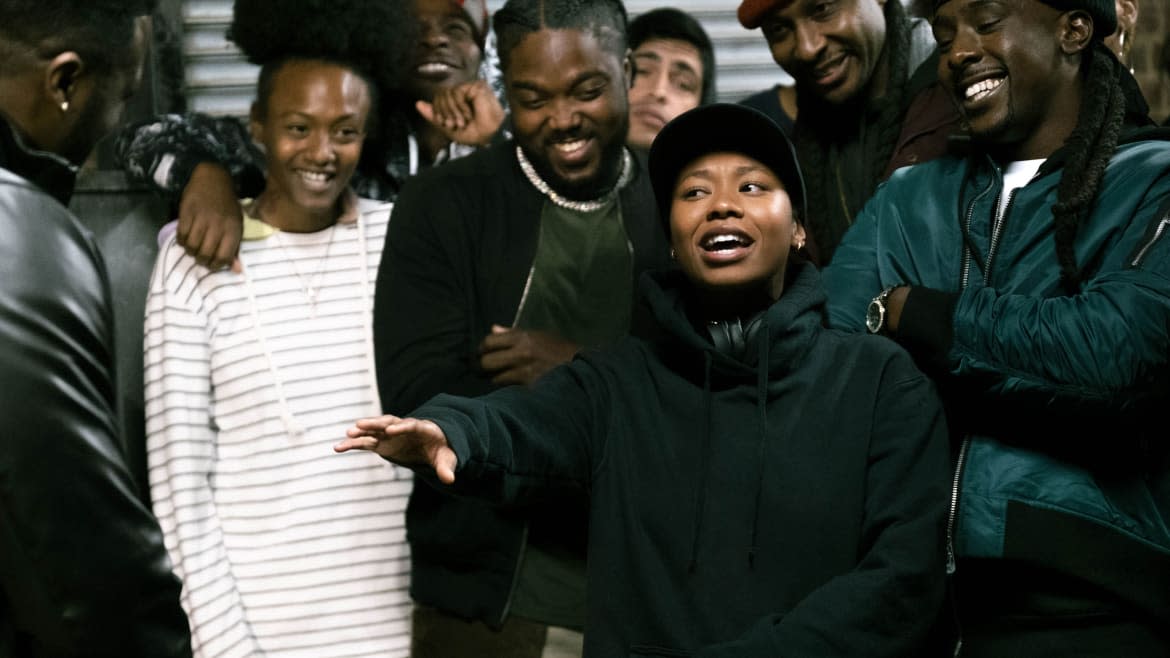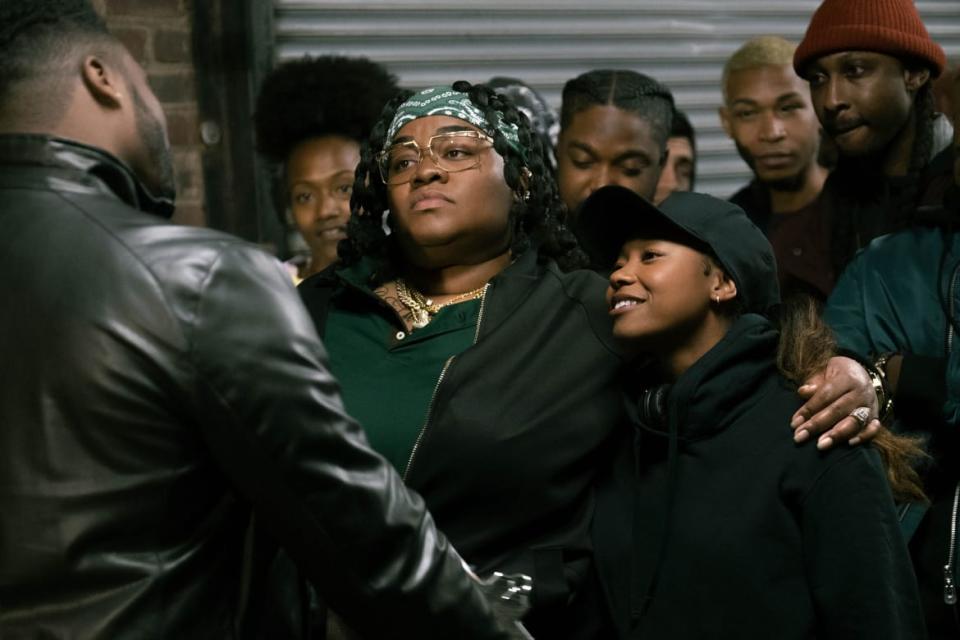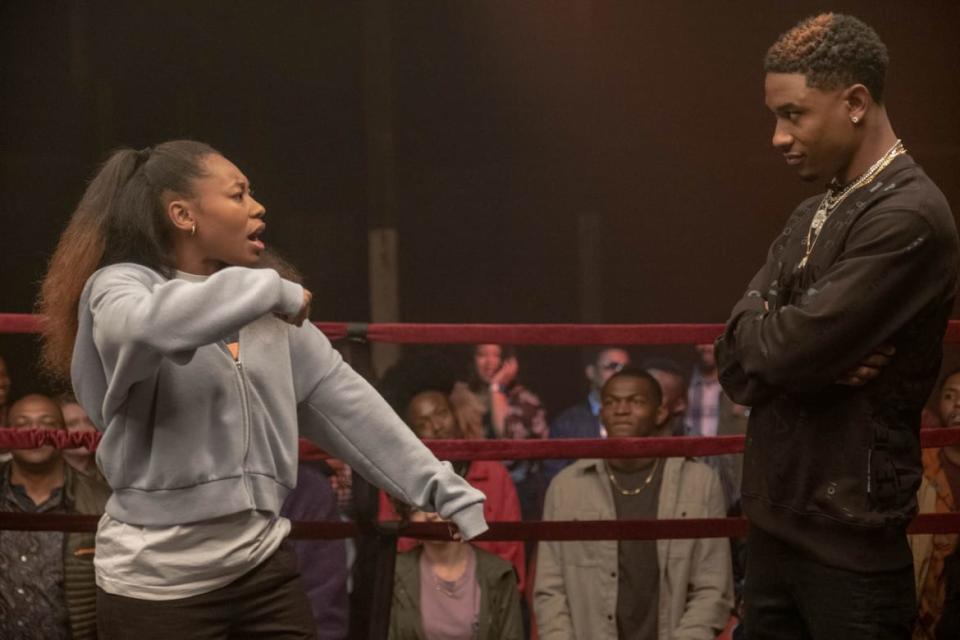Sanaa Lathan’s ‘On the Come Up’ Is a Frustrating Letdown

There’s a certain skill required in depicting an aspiring musician’s journey and making an audience invested in their dreams, whether it’s the uber-talented and charismatic Ally in 2018’s A Star Is Born or someone as average and ambitionless as Paper Boi on FX’s Atlanta. This was never clearer to me than when I sat down to watch the frustratingly dull and out-of-touch On the Come Up, a new Paramount+ film adapted from Angie Thomas’ 2019 novel of the same name about an aspiring teenage rapper.
The first directorial effort from actress Sanaa Lathan, On the Come Up follows 16-year-old Bri (Jamila Gray), aka Lil’ Law, as she strives for a lucrative rap career in the shadow of her father, a legendary MC named Lawless who fell victim to gun violence. In the first act of the film, we watch Bri go to rap battles in her troubled city of Garden Heights (the same fictional town where Thomas’ The Hate U Give was set) alongside her manager, Aunt Pooh, played by the always electric Da’Vine Joy Randolph. Pooh is a devoted mentor and parental figure to Bri, whose actual mother, Jay, played by Lathan, is a recovering addict. But Pooh’s management has hardly earned Bri any cash or fame outside of an occasional $500 prize from battle rapping.

After out-rhyming a young artist named Milez (Justin Martin), Bri is approached by his father, Supreme (Cliff “Method Man” Smith), who previously managed Lawless and offers to turn her into a star. From there, the movie launches into a familiar parable about selling out and abandoning your roots, with some needless rom-com moments between Bri and her best friend-turned-boo Malik (Michael Cooper Jr.). This is also where the film’s commentary on the rap industry starts to fall apart, presenting an outdated dichotomy of authenticity versus posturing that feels reductive and blatantly anti-hip-hop at times.
While we don’t hear much of Bri’s original music outside of her freestyling, we get the sense that she sees herself as a more grounded, “serious” rapper with no interest in writing lyrics about anything outside of her own lived experiences. This becomes clear when she faces off against an outwardly feminine rapper who resembles Saweetie, and impresses the crowd by essentially calling her a whore and insulting her fake body. Bri’s ignorant slut-shaming is likewise meant to impress us viewers, even though the Saweetie clone had much better bars. Where is her movie?
Other parts of the film establish a rather basic divide between superficial rappers leaning into stereotypes and those, like Bri, with “something to say.” For instance, when Supreme brings Bri to a recording session with a group of bona fide producers, her lyrics prove too modest for a certified hit. Supreme offers her some counsel, telling her that the majority of rap consumers are “white kids in the suburbs” who want to listen to music that “scares their parents.” She then puts on a more aggro, gangsta-rap persona, threatening police officers and even her local gang, much to Supreme and the producers’ delight. Her song becomes a hit at her high school and on Pandora (which is spoken about as a dominant streaming service like it’s 2007) but results in some life-threatening consequences for her and her loved ones.
It’s frustrating that a movie about hip-hop reinforces such tired tropes about the genre, like that successful rappers are solely vessels for square, white kids, and that “hard” rap automatically leads to violence. Sure, there are some nuggets of truth there, based on individual circumstances and rappers’ personal life choices. But On the Come Up doesn’t offer the artists any sort of specificity or agency outside of its lead.

Plus, in all its critiques of hip-hop types and what the industry demands, nowhere does the film address the fact that Bri is a deeply boring and colorless performer. Yes, it’s important to have substance, but it’s also impossible to be a compelling music act without any personality. It makes her relative success, even with her nepotism-baby status, almost unfathomable. Her dreams of stardom are ultimately awkward to root for outside of the fact that she needs to provide for her family, who can’t afford to keep the lights on.
In addition to its disappointing story, On the Come Up struggles on the visual front with some of the choppiest editing choices I’ve seen in a while. Several scenes noticeably lack rhythm and smoothness. Cinematographer Eric Branco, who ironically worked on a much better, prettier movie about an aspiring female rapper, The Forty-Year-Old Version, hardly spends any time establishing setting before we’re careened to a completely different environment. It’s extremely distracting, on top of the movie’s other flaws.
‘Dear Mama’ Reveals How Tupac’s Mother Gave Him His Rebel Heart
On a positive note, none of On the Come Up’s failures can really be blamed on its ensemble, whose chemistry gives us some much-needed relief. Miles Gutierrez-Riley shines as Bri’s gibing gay best friend Sonny. Randolph enlivens every scene she’s in. Method Man excels in being fine and charming as per usual. And Lathan manages to turn in a moving dramatic performance to counterbalance her shortcomings as a director.
Despite how amateur this film feels, I’m interested in what an actor who’s been such a dominant force in romantic comedies can bring to the table as an auteur. We can only hope that Lathan will one day be given more opportunities and better collaborators to properly execute her vision.
Get the Daily Beast's biggest scoops and scandals delivered right to your inbox. Sign up now.
Stay informed and gain unlimited access to the Daily Beast's unmatched reporting. Subscribe now.

 Yahoo News
Yahoo News 
